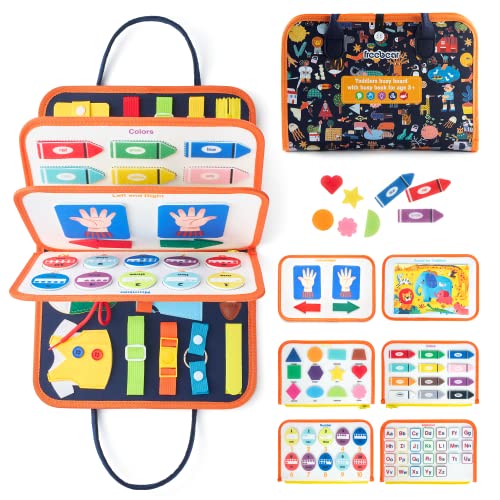In This Article Show
Navigating the world of infant nutrition can be tricky, especially regarding milk. Many new parents have questions about the best type of milk for their baby – is cow’s milk okay?
Is lactose-free milk available for babies? The answers aren’t always what you would expect, so it’s important to get all the facts before deciding.
This article will discuss whether babies can have lactose-free milk and what alternatives may be available. We’ll also review why some parents choose lactose-free milk for their babies and its potential benefits and risks.
Why Would a Baby Need Lactose-free Milk?
Lactose-free milk is a type of cow’s milk treated to remove lactose. Lactose is a sugar found in all dairy products that can cause stomach discomfort and diarrhea in some people who cannot digest it.
Lactose-free milk is an alternative for people who are lactose intolerant or have trouble digesting lactose. It can also be a preventive measure for people who experience problems after consuming dairy products.
There are several reasons why a baby might need lactose-free milk. If you as the parent are lactose intolerant, your baby may be at risk for developing the same condition.
Great deals to snatch for your little ones 🎉
Additionally, some babies have trouble digesting lactose, which can lead to stomach discomfort and diarrhea. In these cases, lactose-free milk can provide relief. If you think your baby may need lactose-free milk, talk to your pediatrician to see if it’s right for your child.
Is Lactose-free Milk Great For Babies?
Giving your baby lactose-free milk instead of regular milk has a few pros and cons. On the plus side, lactose-free milk is easier for your baby to digest, so they may be less likely to experience stomach discomfort or diarrhea. There are many brands of lactose-free milk fortified with extra calcium and vitamin D, which can be beneficial for your baby’s developing bones.
However, there are also a few potential drawbacks to using lactose-free milk. First of all, it can be more expensive than regular milk. Additionally, some babies may not like the taste of lactose-free milk as much as regular milk.
And finally, while lactose-free milk is easier to digest, it still contains small amounts of lactose (the sugar found in milk), so it’s not completely “lactose-free.” It is best to weigh your options thoroughly to decipher the best option for your little one.

How to Introduce Lactose-free Milk to Your Baby
If you think your baby may be lactose intolerant, you may be wondering if lactose-free milk is an option. Lactose-free milk is cow’s milk that has been treated to remove lactose. This makes it a safe alternative for babies who are intolerant to lactose.
To introduce lactose-free milk to your baby, start by offering small amounts in a bottle or cup. If your baby tolerates this well, you can gradually increase the amount of lactose-free milk they are drinking. You can also mix lactose-free milk with formula or breastmilk to make the transition easier.
If your baby does not tolerate lactose-free milk well, other options are available such as soy milk or almond milk. You should consult your pediatrician to determine what is best for your baby. They can help you create a personalized feeding plan that will ensure your baby gets the nutrients they need while avoiding discomfort.
Types of Lactose-free Milk
Some babies are born with lactose intolerance, which means their bodies cannot produce the enzyme necessary to break down lactose. If you suspect your baby may be allergic or intolerant to lactose, talk to their doctor about testing and treatment options.
However, lactose-free milk options abound these days, which is great news for many babies who are intolerant to lactose. But with so many choices, it can be hard to know which one is right for your baby. Here’s a rundown of some of the most popular options;
1. Soy Milk
Soy milk is a popular choice for lactose-free infant formula, as it contains all the essential nutrients that a baby needs. However, some babies may be allergic to soy, so be sure to talk to your pediatrician before switching to this option.
2. Almond Milk
Almond milk is another dairy-free alternative that is becoming increasingly popular. It’s a good source of vitamins and minerals. Many brands now offer fortified versions that contain added calcium and vitamin D. Again, always check with your doctor before making the switch, as some babies may have an allergy to almonds.
3. Rice Milk
Rice milk is another dairy-free option that can be used in place of cow’s milk or soy milk. It’s lower in protein than both of those options, but it’s still a good source of other essential nutrients. As with any new food, introduce rice milk slowly and watch for any signs of intolerance or allergies.
4. Hemp Milk
Hemp milk is a newer option on the market that is made from hemp seeds. It’s a complete protein source and contains omega-3 fatty acids, making it a nutrient-rich choice for growing babies

How To Introduce Lactose-free Milk To Your Baby
If you think your baby may be lactose intolerant, you may wonder if lactose-free milk is an option. Lactose-free milk is cow’s milk that has been treated to remove lactose. This makes it a safe alternative for babies who are intolerant to lactose.
To introduce lactose-free milk to your baby, start by offering small amounts in a bottle or cup. If your baby tolerates this well, you can gradually increase the amount of lactose-free milk they are drinking. You can also mix lactose-free milk with formula or breastmilk to make the transition easier.
If your baby does not tolerate lactose-free milk well, other options are available such as soy milk or almond milk. You should speak with your pediatrician to find out what is best for your baby.
Conclusion
If your baby has symptoms like diarrhea, vomiting, or abdominal pain after consuming milk or other dairy products, it may be allergic to lactose. It is safe for babies to drink lactose-free milk as long as they get all the essential vitamins and minerals they need from other sources.
Lactose-free milk can be a great option for parents who want to give their baby a dairy alternative that is still packed with nutrients.
If you decide to give your baby lactose-free milk, make sure that you consult with your pediatrician first to ensure that your child’s nutritional needs are being met and that there are no underlying health issues at play.













